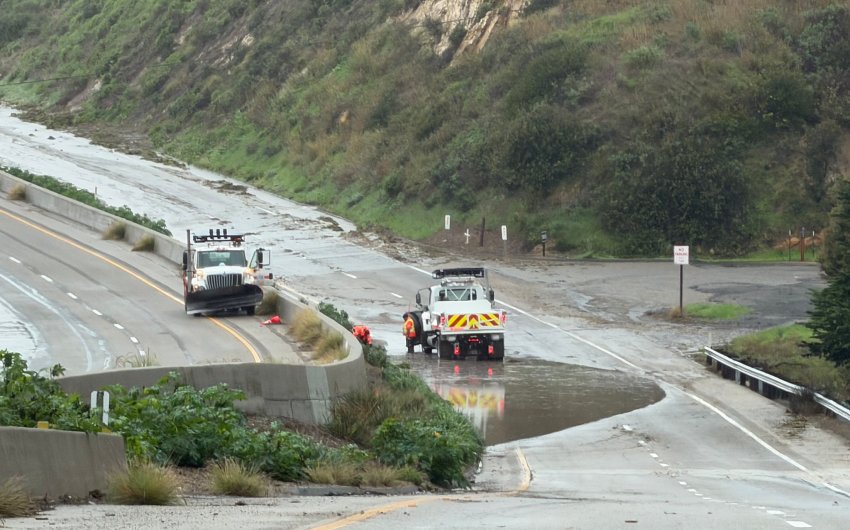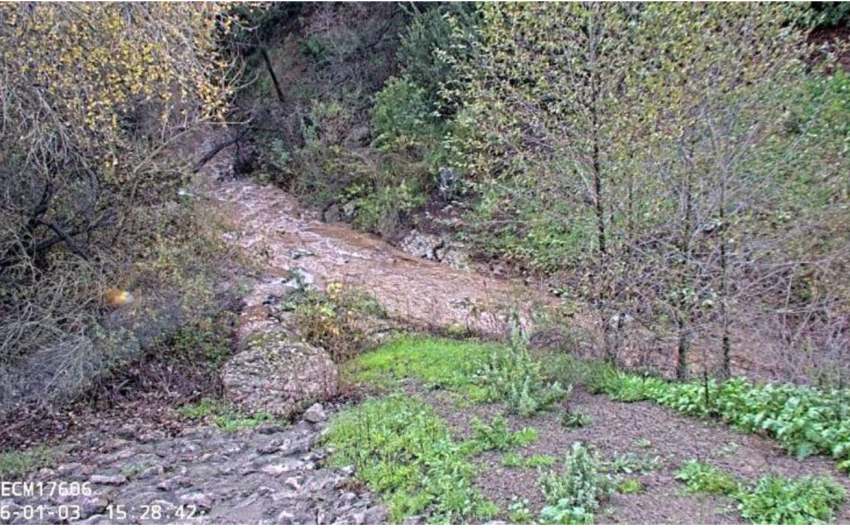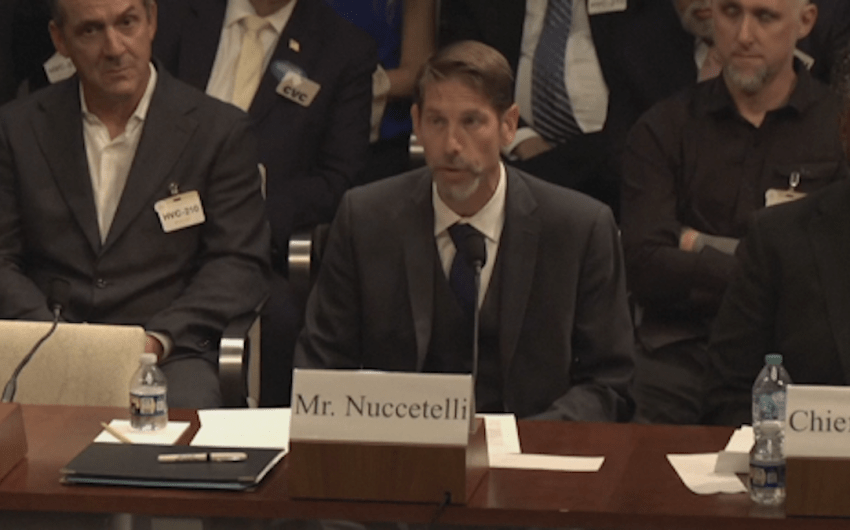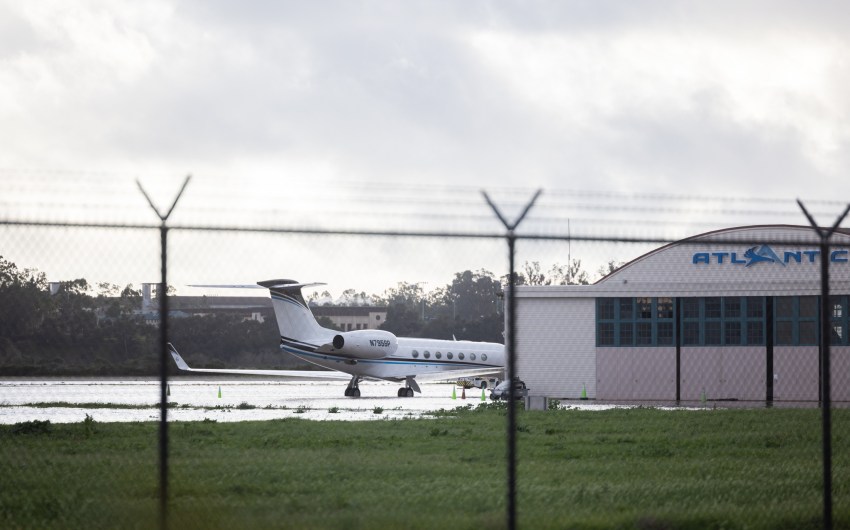When Santa Barbara County Supervisor Bob Nelson showed up to the “Toxic Tour” of Santa Maria farmland, he was told, in polite terms, to buzz off.
While the bus full of high school students and others invited on the tour — including the county’s agricultural commissioner, Jose Chang — drove off, Nelson and some local growers, who were also denied, stood in the parking lot commiserating.
The educational tour was focused on sharing the experiences of farmworkers and students who attend school near agricultural fields.
It was organized at the request of the California Department of Pesticide Regulation (DPR) to “highlight the impacts of pesticide use on vulnerable populations,” according to a press release sent out by the nonprofit CAUSE (Central Coast Alliance United for a Sustainable Economy), a key group in organizing the tour and a prominent voice in advocating for local farm workers.
Attending reps of these “vulnerable populations” were able to share their “first hand accounts” to state officials, including DPR director Julie Henderson, CAUSE said.
“The event facilitated important discussions about community health and the challenges faced by those studying, working, and living in high-risk areas,” it added.
Nelson and the growers, with their alleged “unexpected presence,” raised the hairs of attendees, the nonprofit charged.
One 17-year-old youth farmworker who attended the tour, Araceli, is quoted saying, “This could have been my boss or my boss’ friend, and it makes me afraid to talk about things happening at work. Would we be retaliated against?”
Some members of the agricultural industry called the week of the event to participate. “However, by that point the bus was at capacity,” CAUSE said.
“We welcome constructive dialogue, but we also believe it is important to create spaces where students and workers can share their experiences freely,” said CAUSE’s co-executive director Hazel Davalos.
In lieu of joining the tour, Nelson and the growers were “encouraged” to “organize their own separate event with DPR,” according to CAUSE.
However, Nelson — who took to social media to share his frustration with being denied on the tour — maintains that he was invited by a DPR deputy director and made multiple calls to organizers to confirm his seat with no reply.

“The event, advertised as an opportunity for community leaders and high school students to examine potential unsafe conditions in our community, seemed like a valuable chance for a productive dialogue,” he wrote on Facebook.
He called the name, Toxic Tour, “inflammatory” and “antagonistic” when describing the district and community he represents.
“If they’re doing their job,” he said of the DPR, “it shouldn’t be a toxic tour.”
According to Nelson, the county is taking “great efforts” to ensure public safety on and near farms. The Agricultural Commissioner’s inspections of county fields have “doubled or tripled” in recent years, he said, and the county has made an effort to provide services and support to farmworkers through their Farmworker Resource Center.
He added that pesticides are “not necessarily a bad thing,” comparing them to medication, with dosage making the difference between beneficial and harmful.
“Farmers don’t want to apply any more pesticides than they have to,” he continued. “Organizations like the DPR are in charge of making sure it’s done correctly.”
Nelson went on to reference a 2023 report from the DPR of its four monitoring stations in “areas with high pesticide use,” including Santa Maria, which found that 95 percent of all air samples analyzed had no detectable pesticides.
Only seven of 38 pesticides were detected at “quantifiable levels,” but the DPR said that those detections fell “below health-protective screening levels or regulatory targets.”
“Nobody wants to hurt anybody; not my people,” Nelson said. “And I’ll be the first person to want to go after someone doing something incorrectly.”
Some pesticides are restricted by state and federal agencies due to their potential negative consequences. The Environmental Protection Agency recently issued a very rare emergency order to ban the herbicide Dacthal, citing its serious health risks for pregnant women and unborn babies. According to a May 2024 report by the DPR, Santa Barbara County ranked fifth in California for Dacthal use in 2022, totaling nearly 11,000 pounds.
According to CAUSE, the tour concluded with a “productive discussion” with DPR and other state agencies “where youth requested more action to protect vulnerable populations from the effects of toxic chemicals, such as 1,3-dichloropropene (1,3-D), a heavy-duty pesticide that’s banned in other countries, yet commonly applied on strawberry crops in California,” which is Santa Barbara County’s top, most lucrative crop.
As for Nelson, he and some of the county’s growers expressed interest in organizing a separate, open tour with the DPR, which he said he is looking forward to.










You must be logged in to post a comment.